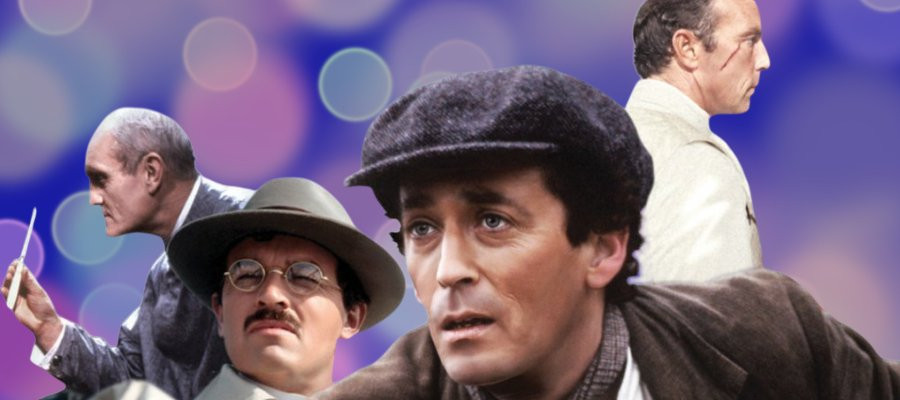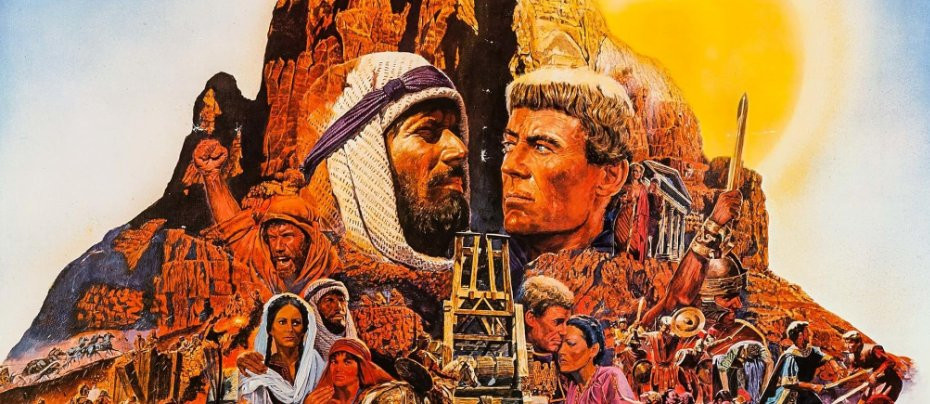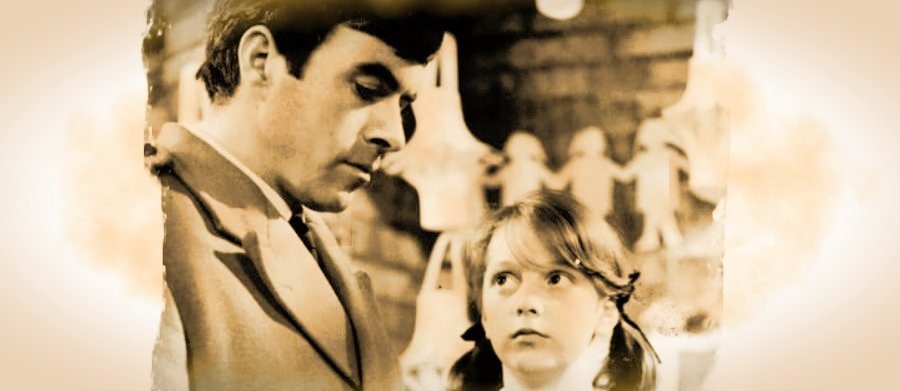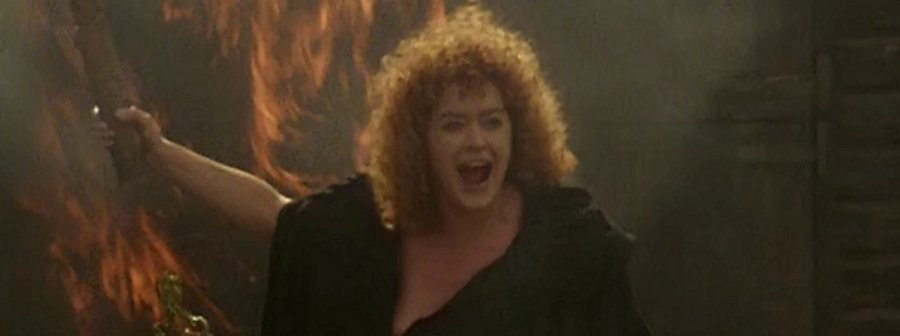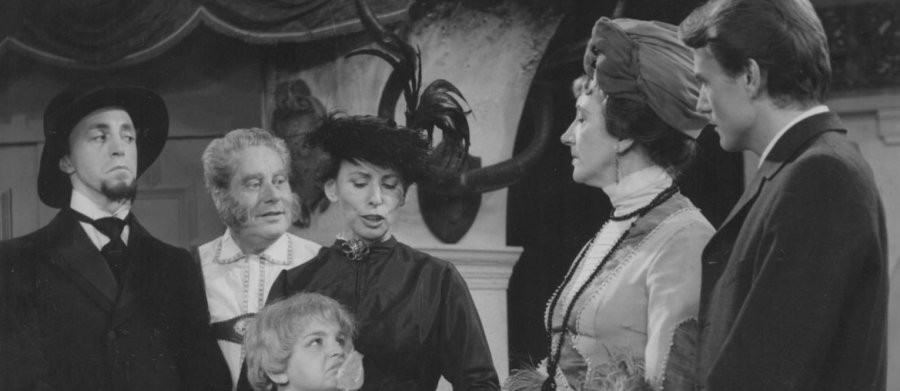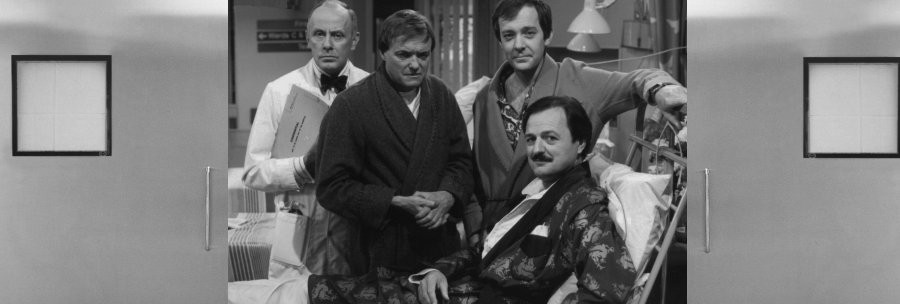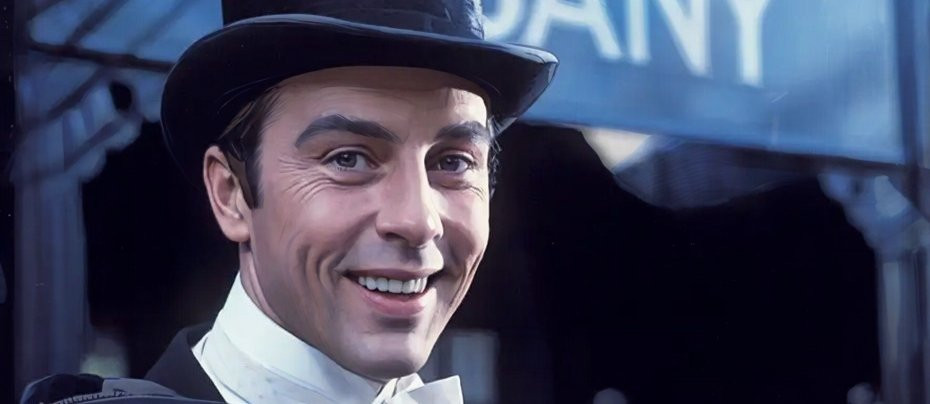
Raffles - The Pilot
Raffles - The Pilot is reviewed by John Winterson Richards
Although it ran for only a single season, the ITV adaptation of E W Hornung's Raffles stories with Anthony Valentine, perfectly cast, in the title role, was well received at the time, attracted a decent number of viewers, and tends to be remembered fondly by those who saw it. Among them was the youngster who grew up to become your reviewer, and who later bought the series on DVD. It stands up well on rewatching after several decades, despite one having become more aware of the tricks of production in the intervening period: with such high quality writing and acting on display one can forgive that what once looked sumptuous now looks cheap.
Yet what is now described anachronistically as the pilot episode was not included in the DVD set - giving us the excuse to talk about it separately from our main review of the series. It is available on YouTube at the time of writing, together with the rest of the series which is also on the DVDs.
This also provides the excuse to say a little about the concept of the ‘pilot episode’ in general. The concept was already well established on American television, but the British were more reticent about calling it what it was, a trial run. The usual form on British television was therefore to produce a promising property as a freestanding television play with one eye on the possibility of turning it into an ongoing series if it was well received. That way there was no loss of face if it did not live up to the producers' highest hopes. This was what had happened with the more experimental Callan. Although Raffles was a relatively conventional offering, given the costs of a historical drama, it seems more likely than not that much had been lined up, on the assumption that it would prove sufficiently popular to justify the full series. So it did.
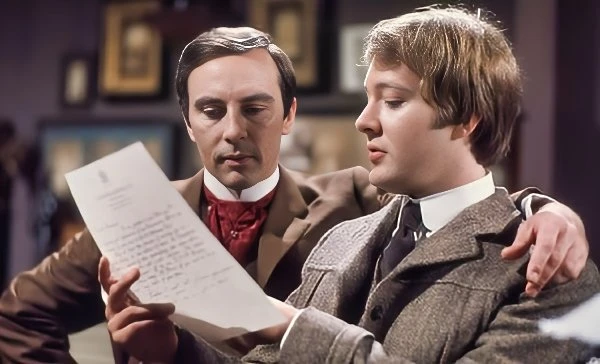
The pilot, if we can still call it that, is unusual of its type in that we do not begin at the beginning. It is subtitled The Amateur Cracksman and, based mainly on Hornung's short story Gentleman and Players combined with elements of another, The Return Match. The third Raffles story to be published, Gentleman and Players might be described in the cricketing terms familiar to Raffles as a steady middle order bat. There is nothing flashy about it, but it contains many of what would become the classic Raffles tropes. It opens with Raffles and his generally useless associate "Bunny" Manders already established as jewel thieves. As so often, Raffles is invited to a country house for the weekend to play cricket and decides to take the opportunity to indulge in a little safecracking on the side. Complications ensue. Those complications were extended into The Return Match, a later story which served as a direct sequel to Gentleman and Players, and one in which Raffles is forced to improvise not in some distant country house but on his home ground, the Albany in London, where he maintains his bachelor apartment.
It is interesting to note that some of the same elements, specifically the cricket weekend at the country house where Raffles burgles his hosts or fellow guests, are also found in The First Step, the first episode of the regular series of Raffles following the pilot The Amateur Cracksman. Although the title of The First Step seems to refer to Le Premier Pas, a later story in which Raffles reminiscences in flashback about how he got started in larceny himself, the plot is actually a combination of two completely different stories, The Ides of March and Out of Paradise, put together to provide an explanation for how Bunny became involved.
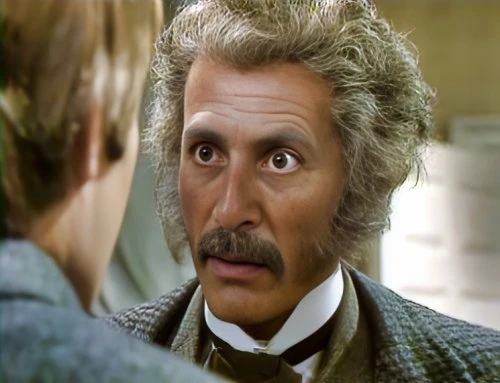
As such, The First Step is both a prequel and a reboot to The Amateur Cracksman. The two are consistent, except that The Amateur Cracksman introduces Raffles' nemesis, Inspector Mackenzie, but in The First Step, set before the events in The Amateur Cracksman, Raffles speaks of him as if they are already well acquainted. Mackenzie does not in fact appear in The First Step, which would excuse Bunny (Christopher Strauli) not recognising him in The Amateur Cracksman, but not Raffles, who does indeed spot him at once. There is, of course, also the point that Mackenzie is played by two different actors, James Maxwell in The Amateur Cracksman and Victor Carin in those episodes of the regular series in which he appears.
From start to finish Raffles is entirely Anthony Valentine's show. He was very much the coming man in the Seventies, with memorable supporting performances as Toby Meres in the previously mentioned Callan and as Major Mohn in Colditz. It was generally felt at that point that he deserved the leading role in a major series and Raffles proved the ideal vehicle for his talents. It helps that his physical appearance is consistent with what one might imagine reading the stories, but more importantly Valentine always brought a fascinating ambiguity to all his roles which is particularly appropriate to Raffles.
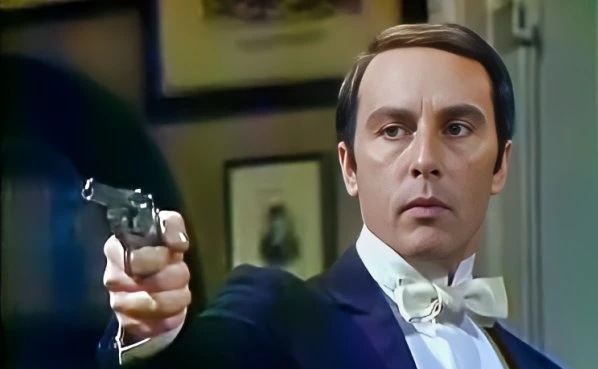
There was always an edge to Raffles in Hornung's stories that does not always come across in other adaptations - most famously David Niven playing him as a Nivenesque loveable rogue in the classic Thirties feature film - but which Valentine and writer Philip Mackie (The Caesars, Napoleon and Love) are not afraid to bring to the fore. Mackie is one of the greatest of a hugely talented generation of British scriptwriters of the Golden Age of British Television Drama. As such, he is not as appreciated as much as he deserves: he might have been remembered as the Master-Adaptor of his time had he not been a contemporary of Jack Pulman. His secret, which today's writers would do well to relearn, was to stick as closely as possible to the essence, if not necessarily the detail, of his source material, Raffles being an outstanding example.
There is a very dark side to Raffles in Hornung's stories. His casual manipulation of everyone around him, above all Bunny, whom he dominates like a vampire, would today be diagnosed as high functioning psychopathy. His motivation is pure snobbery: he is an idler with no means of support, and no talent except his strange personal charm and his excellence at cricket, in which he is desperate to retain his status as a "Gentleman" amateur as opposed to a professional "Player." When one of several pretty girls he attracts talks of the notorious Amateur Cracksman who is reputed to rob the rich to give to the poor, Raffles remarks that the "hard up" are poor.
As classic gentleman thieves, Raffles and Bunny were very much the anti-Holmes and Watson of the ‘Naughty Nineties,’ when Victorian morality began to fray a little. As such, they were second in popularity only to the Baker Street duo themselves. Hornung was the first to acknowledge that his characters were based in part on Sir Arthur Conan Doyle's. It was in fact his great competitor who had encouraged him to write the Raffles stories, this generosity doubtless stimulated by his being married to Sir Arthur's sister.
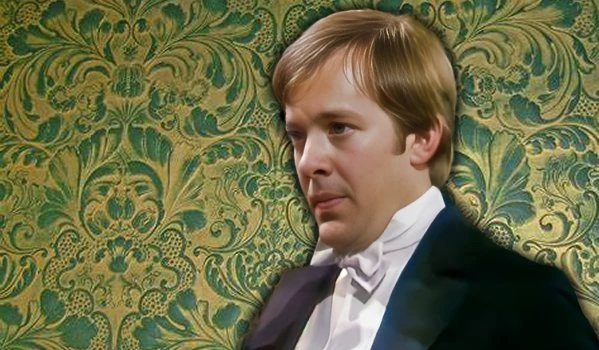
It is not Christopher Strauli's fault that, thanks to his success in Only When I Laugh and the film adaptation of Rising Damp, we see him primarily as a comic actor and his casting as Bunny now seems out of place in what is supposed to a drama, even a light hearted one. That said, there is something poignant in his portrayal of a vulnerable boy who never quite grew up and who feels he still needs the protection of his childhood hero, despite the older boy having a definite School Bully vibe about him. It also invites reflection on Raffles himself, that he feels the need for this obvious loser in his life because, for all his superficial popularity, he has no one else.
Raffles and Bunny's story is therefore rather pathetic, and in the books ultimately tragic: Victorian morality prevailed even in the Naughty Nineties and crime could not be seen to pay. Sad in another way is the real life fact that Valentine never got another role as good as this. He worked steadily and was always a welcome presence as a guest villain, but British television drama lost its way a bit in the Eighties and Nineties, and there were no more parts for him like Raffles in which he really demonstrated his star quality as a leading man.
Published on January 24th, 2025. Written by John Winterson Richards for Television Heaven.


